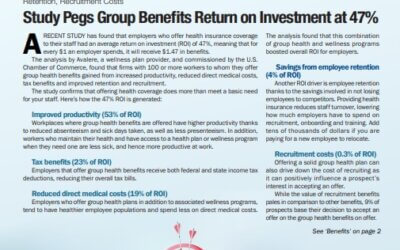A recent decision by the U.S. Supreme Court will make it more difficult for employers to deny employees’ requests for religious accommodations in the workplace.
The unanimous decision by the court in the case of Groff vs. DeJoy basically upends a standard for accommodating religious beliefs that has been in place since 1977.
The case concerns a mail carrier who asked not to work on Sundays due to his religious beliefs, after his employer, the U.S. Postal Service, contracted with Amazon to deliver its packages on Sundays.
The ruling will require that employers take a new approach to handling their employees’ requests for religious accommodations in the workplace. Legal experts say the decision could spur a slew of new requests as well as renewed ones from employees whose requests had been declined.
The case
When mail carrier Gerald E. Groff’s U.S. Postal Service location started requiring its staff to work on Sundays to fulfill the Amazon contract, he was able to swap shifts with co-workers. But they grew resentful and stopped swapping shifts with him. After a number of shifts went unfilled, the USPS informed him that it could not reasonably accommodate his request not to work on Sundays.
Groff quit and sued U.S. Postmaster General Louis DeJoy alleging Title VII religious discrimination and the case made its way to the Supreme Court, which sided with him in his appeal.
In its decision, the court wrote that an employer must accommodate an employee’s religious practice as long as the proposed accommodation does not create “substantial increased costs in relation to the conduct of [the company’s] particular business.”
The decision jettisons a standard that has been in place since SCOTUS’s 1977 decision in Trans World Airlines, Inc. vs. Hardison: That if making accommodation constitutes more than a de minimis cost to the employer, then the request was considered an “undue hardship” and the employer could deny the request. Even the Equal Employment Opportunity Commission deferred to this standard.
How it changes the equation
“Substantially” increasing costs in relation to the company’s operations is a significantly higher bar and burden of proof for employers that reject religious accommodation requests.
One of the key takeaways from the decision is that employers must explore all of their options, like voluntary shift-swapping.
It also warned that “a hardship that is attributable to employee animosity to a particular religion, to religion in general, or to the very notion of accommodating religious practice cannot be considered ‘undue.'” In other words: If other employees don’t like the fact that their colleague is getting a certain day off, that is no excuse for denying the request.
In light of this ruling, you should revisit your workplace policies for dealing with religious accommodations. If you receive a request and are unsure how to proceed, consider consulting with counsel.

